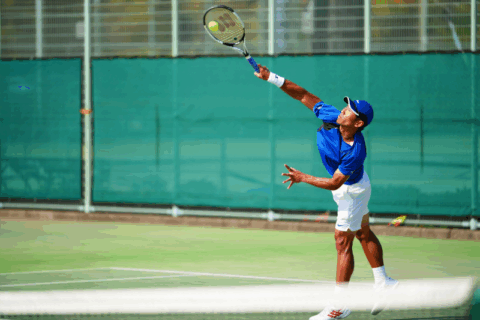
Nutrition and recovery tips for pro tennis success
In the high-stakes world of professional tennis, every detail counts. Success on the court depends not only on talent and technique but also on meticulous attention to nutrition and recovery. These elements are fundamental to enhancing strength, optimizing performance, and preventing injuries. Whether you’re an aspiring pro or a seasoned athlete, understanding and implementing effective nutrition and recovery strategies can elevate your game and ensure longevity in your career.
Why Nutrition and Recovery Are Critical for Pro Tennis Players
Tennis is an intense sport that demands both physical endurance and mental resilience. The constant agility, quick sprints, and powerful strokes deplete energy stores and cause micro-damage to muscles. Proper nutrition helps replenish glycogen levels, repair tissues, and maintain focus, while targeted recovery practices allow the body to heal and adapt.
Key benefits include:
- Enhanced Physical Performance: Fueling your body correctly ensures optimal energy levels during matches.
- Injury Prevention: Adequate recovery reduces the risk of strains, tendinitis, and overuse injuries.
- Faster Muscle Repair & Growth: Proper nutrition supplies essential nutrients for tissue regeneration.
- Mental Sharpness: Well-nourished athletes exhibit better concentration and decision-making on court.
- Longevity in the Sport: Effective recovery routines help maintain peak condition over a prolonged career.
Effective Nutrition Strategies for Pro Tennis Athletes
Proper diet plans are tailored to meet the high demands of professional tennis. The goal is to sustain energy, support recovery, and optimize overall health.
Macronutrient Balance
Focus on a balanced intake of the three core macronutrients:
| Nutrient | Role in Tennis Performance | Sources |
| Carbohydrates | Primary energy source; replenish glycogen stores | Whole grains, fruits, vegetables, legumes |
| Proteins | Muscle repair and recovery | Lean meats, dairy, eggs, plant-based options like beans and tofu |
| Fats | Sustained energy; aids in hormone production | Nuts, seeds, avocados, olive oil |
Hydration is Key
Dehydration significantly impairs performance and recovery. Strategies include:
- Drinking water consistently throughout matches and training.
- Using electrolyte drinks during prolonged exertion to replace lost salts.
- Monitoring urine color to assess hydration status.
Nutrient Timing
Optimal timing enhances recovery and energy:
- Pre-match: Carbohydrate-rich meal 2-3 hours before play.
- During match: Small carbohydrate snacks or drinks to maintain energy.
- Post-match: Protein and carbohydrate combo within 30–60 minutes to replenish glycogen and repair muscles.
Recovery Protocols for Optimal Performance
Recovery is an active process involving rest, nutrition, and specific techniques designed to reduce fatigue and prevent injury.
Rest and Sleep
- Aim for 7-9 hours of quality sleep nightly.
- Implement short naps post-training if necessary.
- Prioritize sleep hygiene to promote deep sleep cycles, essential for physical repair.
Active Recovery
Engage in low-intensity activities like:
- Light jogging or swimming.
- Yoga or stretching routines to improve flexibility.
- Foam rolling and self-myofascial release.
Cold and Heat Therapy
Alternate use of:
- Ice baths or cold packs to reduce inflammation.
- Heat packs or saunas to increase blood flow and relax muscles.
Professional Treatments
- Regular physiotherapy and massage.
- Chiropractic adjustments if needed.
- Monitoring with sports medicine specialists for injury prevention.
Incorporating Technology and Monitoring
Modern athletes leverage technology to optimize nutrition and recovery:
- Wearable devices tracking activity levels, heart rate, and sleep quality.
- Mobile apps for meal planning, hydration reminders, and injury management.
- Blood tests and biomarker analysis to personalize nutrition plans.
Frequently Asked Questions
How important is diet for recovery?
Extremely important. Proper nutrition provides the raw materials needed for tissue repair, immune support, and energy restoration, directly impacting recovery speed and effectiveness.
Can supplements replace a balanced diet?
Supplements can support your diet but should not replace whole foods. Always consult with a sports nutritionist before adding supplements to your routine.
How do I prevent overtraining injuries?
Maintain balanced training loads, prioritize recovery, and listen to your body. Incorporate rest days and varied workouts to prevent overuse.
What are some quick recovery snacks?
Options include:
- Greek yogurt with berries.
- Banana with almond butter.
- Protein shakes with fruit.
- Sport bars with balanced carbs and protein.
Final Thoughts: Take Action for Peak Performance
Achieving pro-level tennis success requires more than just practicing strokes. Nutrition and recovery strategies are the foundation that supports your physical and mental strengths. Implementing tailored diet plans, prioritizing rest, and utilizing recovery technologies can help you unlock peak performance, reduce injury risk, and extend your career in professional tennis.
Start today — reevaluate your nutrition and recovery routines and discover the transformative impact they can have on your game. Your journey to tennis excellence begins with smart choices now!


